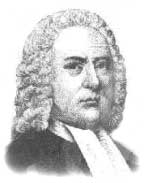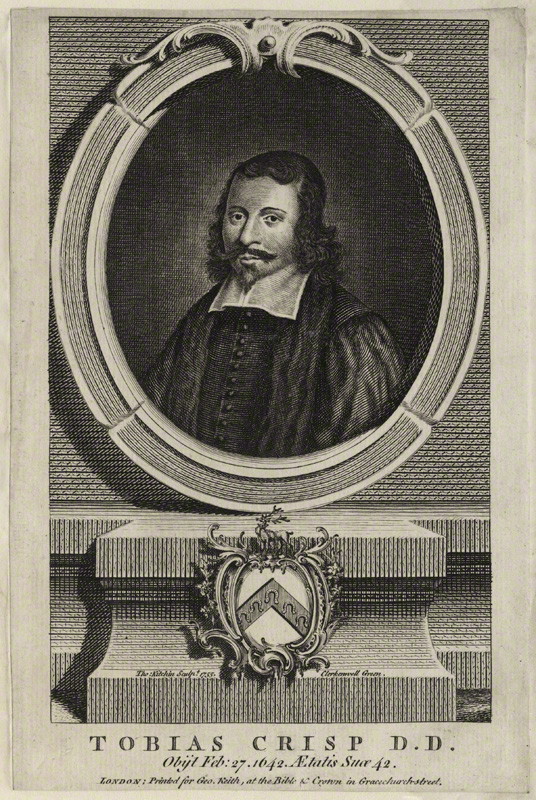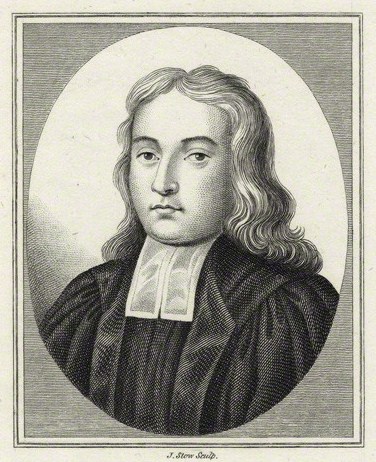|
Justification From Eternity
Justification from eternity is a concept within Protestant theology asserting that the justification of a believer takes place at least partially in eternity past. Justification from eternity is not part of mainstream Protestant theology, and is explicitly rejected by the Westminster Confession of Faith, which asserts, God did, from all eternity, decree to justify all the elect, and Christ did, in the fullness of time, die for their sins, and rise again for their justification: nevertheless, they are not justified, until the Holy Spirit does, in due time, actually apply Christ unto them. Reformed orthodox theologians taught that justification is part of an order of salvation, and that it follows effectual calling and a person actually believing. Francis Turretin in his ''Institutes of Elenctic Theology'' speaks of some who teach instead that justification was actually executed eternally. He agrees that justification was decreed eternally, but counters that actual execution occur ... [...More Info...] [...Related Items...] OR: [Wikipedia] [Google] [Baidu] |
John Gill
John Gill may refer to: Sports *John Gill (cricketer) (1854–1888), New Zealand cricketer *John Gill (coach) (1898–1997), American football coach *John Gill (footballer, born 1903), English professional footballer *John Gill (American football) (born 1986), American football defensive tackle *John Gill (footballer, born 1941), Australian rules footballer for Carlton *John Gill (footballer, born 1932) (1932–2003), Australian rules footballer for Essendon *John Gill (climber) (born 1937), American mathematician famed for his rock-climbing, especially bouldering Politics *John Gill (Australian politician) (1823–1889), New South Wales colonial politician *John Gill Jr. (1850–1918), U.S. Representative from Maryland *John Gill (trade unionist) (1898–1971), Irish trade unionist and Labour TD Religion *John Gill (theologian) (1697–1771), English Baptist minister and Calvinist theologian *John Glanville Gill (1909–1979), Unitarian minister, scholar, and civil rights activis ... [...More Info...] [...Related Items...] OR: [Wikipedia] [Google] [Baidu] |
John Saltmarsh (clergyman)
John Saltmarsh (born East Riding, Yorkshire, d. 1647) was an English religious radical, ''"One of the most gentle tongued of controversialists"'', writer and preacher. He supported the Covenant and was chaplain in Thomas Fairfax's army. The Dictionary of National Biography describes his theology as "''Calvinistic in its base, but improved by practical knowledge of men''". William Haller called him ''that strange genius, part poet and part whirling dervish''. He preached Free Grace theology, and published on the topics of Peace, Love and Unity. Life Saltmarsh matriculated Magdalene College, Cambridge in 1627, receiving a B.A. in 1633 and his M.A. in 1636. Having graduated from Cambridge he was ordained deacon at Durham in 1637 and rector of Heslerton circa 1637, where he remained until 1643. ''Holy discoveries and flames'' was published in 1640 and is dedicated to Charles I, inspired by the aesthetics of George Herbert.From 1641 Saltmarsh is thought to have begun incorporating not ... [...More Info...] [...Related Items...] OR: [Wikipedia] [Google] [Baidu] |
Christian Terminology
Christians () are people who follow or adhere to Christianity, a monotheistic Abrahamic religion based on the life and teachings of Jesus Christ. The words ''Christ'' and ''Christian'' derive from the Koine Greek title ''Christós'' (Χριστός), a translation of the Biblical Hebrew term ''mashiach'' (מָשִׁיחַ) (usually rendered as ''messiah'' in English). While there are diverse interpretations of Christianity which sometimes conflict, they are united in believing that Jesus has a unique significance. The term ''Christian'' used as an adjective is descriptive of anything associated with Christianity or Christian churches, or in a proverbial sense "all that is noble, and good, and Christ-like." It does not have a meaning of 'of Christ' or 'related or pertaining to Christ'. According to a 2011 Pew Research Center survey, there were 2.2 billion Christians around the world in 2010, up from about 600 million in 1910. Today, about 37% of all Christians live in the Am ... [...More Info...] [...Related Items...] OR: [Wikipedia] [Google] [Baidu] |
Louis Berkhof
Louis Berkhof (October 13, 1873 – May 18, 1957) was a Dutch-American Reformed theologian whose works on systematic theology have been influential in seminaries and Bible colleges in the United States, Canada, Korea and with individual Christians in general throughout the 20th century. Personal life Berkhof was born in 1873 in Emmen in the Netherlands and moved in 1882 with his family to Grand Rapids (Michigan). About the time he graduated from the seminary he married Reka Dijkhuis. They had four children before her death in 1928. He then married Dena Heyns-Joldersma who had two daughters. Education and career Berkhof entered the Theological School of the Christian Reformed Church in Grand Rapids at the age of 19, in which the studies included a 4-year literary course (expanded into Calvin College) and a 3-year theological course (expanded into Calvin Theological Seminary). During this period, he learnt under Hendericus Beuker who introduced him to the works of Abraham Kuyper a ... [...More Info...] [...Related Items...] OR: [Wikipedia] [Google] [Baidu] |
Justification By Faith
''Justificatio sola fide'' (or simply ''sola fide''), meaning justification by faith alone, is a soteriological doctrine in Christian theology commonly held to distinguish the Lutheran and Reformed traditions of Protestantism, among others, from the Catholic, Eastern Orthodox, Oriental Orthodox and Assyrian churches. The doctrine asserts that it is on the basis of faith that believers are made right of their transgressions of the law of God rather than on the basis of what Paul calls "works of the law", sometimes called good works. This forgiveness is known as " justification". In classical Lutheran and Reformed theologies, works are seen to be ''evidence'' of faith, but the works themselves do not determine salvation. In contrast, Methodist doctrine affirms a belief in justification by faith that offers God's forgiveness, but holds that holy living with the goal of Christian perfection (sanctification) is essential for salvation. The doctrine of justification by faith alo ... [...More Info...] [...Related Items...] OR: [Wikipedia] [Google] [Baidu] |
Gerrit Cornelis Berkouwer
Gerrit Cornelis Berkouwer (1903–1996) was for years the leading theologian of the Reformed Churches in the Netherlands (GKN). He occupied the chair in systematic theology of the Faculty of Theology, Free University (VU) in Amsterdam. Berkouwer was born in Amsterdam on 8 June 1903. He was raised in Zaandam. In 1927 he married Catharina Cornelia Elisabeth Rippen in The Hague. In 1932 he obtained his doctorate from the Free University. His dissertation was entitled Geloof en Openbaring in de nieuwe Duitse theologie (Faith and Revelation in Recent German Theology). In 1949 the first volume of his eighteen-volume Studies in Dogmatics appeared in the Netherlands. In 1962 he was an observer at the Second Vatican Council in Rome. He was very influential among the Reformed churches and other groups in North America, where the many volumes of his series, ''Studies in Dogmatics'', were translated and published. He had a continuous flow of seminary graduates to study under him for the degr ... [...More Info...] [...Related Items...] OR: [Wikipedia] [Google] [Baidu] |
Abraham Kuyper
Abraham Kuyper (; ; 29 October 1837 – 8 November 1920) was the Prime Minister of the Netherlands between 1901 and 1905, an influential neo-Calvinist theologian and a journalist. He established the Reformed Churches in the Netherlands, which upon its foundation became the second largest Calvinist denomination in the country behind the state-supported Dutch Reformed Church. In addition, he founded the Vrije Universiteit Amsterdam, the Anti-Revolutionary Party, and a newspaper. In religious affairs, he sought to adapt the Dutch Reformed Church to challenges posed by the loss of state financial aid and by increasing religious pluralism in the wake of splits that the church had undergone in the 19th century, rising Dutch nationalism, and the Arminian religious revivals of his day which denied predestination. He vigorously denounced modernism in theology as a fad that would pass away. In politics, he dominated the Anti-Revolutionary Party (ARP) from its founding in 1879 to his death ... [...More Info...] [...Related Items...] OR: [Wikipedia] [Google] [Baidu] |
Ephesians
The Epistle to the Ephesians is the tenth book of the New Testament. Its authorship has traditionally been attributed to Paul the Apostle but starting in 1792, this has been challenged as Deutero-Pauline, that is, pseudepigrapha written in Paul's name by a later author strongly influenced by Paul's thought, probably "by a loyal disciple to sum up Paul's teaching and to apply it to a new situation fifteen to twenty-five years after the Apostle's death".Authenticity oEphesians Bible apologetics. Hoehner, Harold. ''Ephesians: An Exegetical Commentary.'' Baker Academic, 2002. Brown, Raymond E. ''The churches the apostles left behind'', Paulist Press, 1984. . Themes According to New Testament scholar Daniel Wallace, the theme may be stated pragmatically as "Christians, get along with each other! Maintain the unity practically which Christ has effected positionally by his death."Wallace, Daniel B "Ephesians:Introduction, Argument, and Outline."Bible.org, 1 January 2010 Another majo ... [...More Info...] [...Related Items...] OR: [Wikipedia] [Google] [Baidu] |
John Gill (theologian)
John Gill (23 November 1697 – 14 October 1771) was an English Baptist pastor, biblical scholar, and theologian who held to a firm Calvinistic soteriology. Born in Kettering, Northamptonshire, he attended Kettering Grammar School where he mastered the Latin classics and learned Greek by age 11. He continued self-study in everything from logic to Hebrew, his love for the latter remaining throughout his life. Early life and education At the age of about 12, Gill heard a sermon from his pastor, William Wallis, on the text, "And the God called unto Adam, and said unto him, Where art thou?" (). The message stayed with Gill and eventually led to his conversion. It was not until seven years later that he made a public profession of faith. Pastoral work His first pastoral work was as an intern assisting John Davis at Higham Ferrers in 1718 at age 21. He became pastor at the Strict Baptist church at Goat Yard Chapel, Horsleydown, Southwark in 1719. His pastorate lasted 51 years. In ... [...More Info...] [...Related Items...] OR: [Wikipedia] [Google] [Baidu] |
Tobias Crisp
Tobias Crisp D.D. (1600–1643) was an English clergyman and reputed antinomian. In the end he proved a divisive figure for English Calvinists, with a serious controversy arising from the republication of his works in the 1690s. Life In 1600, Tobias Crisp was born in Bread Street, London. His elder brother was Sir Nicolas Crisp. Tobias was the third son of Ellis Crispe, Ellis Crisp (deceased 1625), a former sheriff of London. Tobias matriculated at Eton College, moved to Christ's College, Cambridge, remained in Cambridge and took his B.A. He removed to Balliol College, Oxford and graduated with an M.A. in 1626. About this time, he married Mary, daughter of London merchant, M.P. and future member of the council of state Rowland Wilson (politician), Rowland Wilson. Tobias and Mary would have thirteen children. In 1627, he was presented to the rectory of Newington Butts. A few months later, Tobias was removed for being party to a simoniacal (''i.e.,'' the sale of a clerical office) c ... [...More Info...] [...Related Items...] OR: [Wikipedia] [Google] [Baidu] |
Anne Hutchinson
Anne Hutchinson (née Marbury; July 1591 – August 1643) was a Puritan spiritual advisor, religious reformer, and an important participant in the Antinomian Controversy which shook the infant Massachusetts Bay Colony from 1636 to 1638. Her strong religious convictions were at odds with the established Puritan clergy in the Boston area and her popularity and charisma helped create a theological schism that threatened the Puritan religious community in New England. She was eventually tried and convicted, then banished from the colony with many of her supporters. Hutchinson was born in Alford, Lincolnshire, England, the daughter of Francis Marbury, an Anglican cleric and school teacher who gave her a far better education than most other girls received. She lived in London as a young adult, and there married a friend from home, William Hutchinson. The couple moved back to Alford where they began following preacher John Cotton in the nearby port of Boston, Lincolnshire. Cotton ... [...More Info...] [...Related Items...] OR: [Wikipedia] [Google] [Baidu] |
William Pemble
William Pemble (Pember) (1591 or 1592–1623) was an English theologian and author. Biography A student of Richard Capel at Magdalen College, Oxford Magdalen College (, ) is a constituent college of the University of Oxford. It was founded in 1458 by William of Waynflete. Today, it is the fourth wealthiest college, with a financial endowment of £332.1 million as of 2019 and one of the s ..., Pemble became reader and tutor at Magdalen. All of Pemble's works were published posthumously. Works *''Vindiciae fidei'', 1625 *''Vindiciae gratiae'', 1627 *''Salomons Recantation and Repentance'', 1627 *''An Introduction to the Worthy Receiving the Sacrament'', 1628 *''De formarum origine'', 1629 *''De sensibus internis'', 1629 *''A Short and Sweet Exposition upon the First Nine Chapters of Zachary'', 1629 *''A Summe of Morall Philosophy'', 1630 *''A Briefe Introduction to Geography'', 1630 *''Tractatus de providentia Dei'', 1631 *''The Period of the Persian Monarchie '', 1631 Exte ... [...More Info...] [...Related Items...] OR: [Wikipedia] [Google] [Baidu] |








